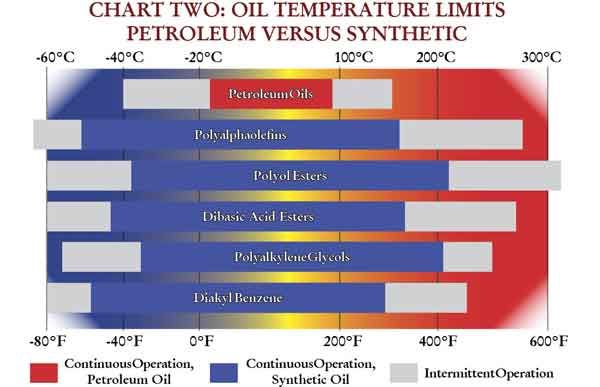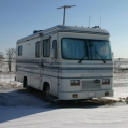Barthmobile Portal
Hey Rusty
08-01-2011, 12:43 AM
Shadow manHey Rusty
What temperature can motor oil go up to before you need to be concerned?
08-01-2011, 11:24 AM
Shadow manAnybody else know the answer?
08-01-2011, 11:59 AM
Bill N.Y.It depends on the brand and viscosity...

Read this post for a better understanding...
http://www.maxxtorque.com/dies...s-synthetic-vs-oil-3There are 4 pages to that article. Look in the lower left for
Next Page >> ˙ʎ˙u ןןıq- „ǝןƃuɐ ʇuǝɹǝɟɟıp ɐ ɯoɹɟ pןɹoʍ ǝɥʇ ʇɐ ʞooן ɐ ƃuıʞɐʇ sı ǝɟıן oʇ ʇǝɹɔǝs ǝɥʇ„
|
 | 1990 Barth Regis Widebody
8908 0128 40RDS-C1
L-10 Cummins
Allison MT647 Transmission
Spartan Chassis |  | 1991 Medical Lab Conversion
9102 3709 33S-12
Ford 460 MPFI
C6 Transmission
Oshkosh Chassis |
Quick Link: Members Only Link To Send Me A Private Message |
08-01-2011, 12:05 PM
bill hIt depends. (Heard that before?)
Synthetics take higher temps than dino oils, for example. Mobil 1 claims good lubrication up to 180 C (356 F) and OK for short durations above 200 C. (392 F) EEEK!
It also depends on the viscosity oil you use.
I'm gonna guess, you are asking about diesel oils for your coach. Don't know much about diesels.
In general, the hotter the oil, the more it thins out, so the more poorly it lubricates.
Note: My degree is not in petroleum engineering.
ON EDIT: Golly, I penned this slowly over breakfast, and on posting it was surprised and pleased to see that Bill NY and I sort of agree.
.
84 30T PeeThirty-Something, 502 powered
08-01-2011, 12:21 PM
Moonbeam-Expressquote:
In general, the hotter the oil, the more it thins out, so the more poorly it lubricates.
Or the flip side; the colder it gets, the more thick and poorly it lubricates.

Formerly: 1997 Barth Monarch
Now: 2000 BlueBird Wanderlodge 43' LXi Millennium Edition DD Series 60 500HP 3 stage Jake, Overbuilt bike lift with R1200GS BMW, followed by 2011 Jeep Wrangler Unlimited,
“I haven’t been everywhere, but it’s on my list.”
08-01-2011, 12:54 PM
bill hYup.
It is really scary to hear a cold engine rattle and clank until the oil thins and the clearances adjust.
Some of our equipment had to be spun long enough to bring up oil pressure before it would fire.
Piston airliners used to have heaters that fit over the front to blow hot air over the engine. Some cold weather transports had an oil dilution system, where gasoline was introduced into the oil to thin it for cold starts. The engine was thoroughly warmed up to evaporate all the gas before take off.
Thick oil also reduces cranking speed in winter.
.
84 30T PeeThirty-Something, 502 powered
08-01-2011, 01:11 PM
Rustyquote:
Originally posted by Moonbeam-Express:
quote:
In general, the hotter the oil, the more it thins out, so the more poorly it lubricates.
Or the flip side; the colder it gets, the more thick and poorly it lubricates.
Not absolutely true. Generally, the higher the RPM, the LESS oil pressure is required. Quasi-laminar flow is the ideal, and the oil has to be thin enough to produce that.
As far as motor oil is concerned, lubrication always seems to be the focus, but an oil has to perform the following functions in an engine:
Lubricate
Clean
Cool
Protect
Seal
Cleaning, cooling, and protecting (and to some extent, sealing) require thinner oil.
The bottom line is that contemporary non-synthetic motor oils can easily withstand temperatures encountered in normal operation. Overheating an engine will cause problems (sometimes catastrophic) other than oil-related.
In a diesel engine, the oil is discarded not because the base stock is deteriorated, but because the additive package is depleted.
IMHO, synthetics are beneficial when an engine is used periodically and allowed to sit unused for extended periods. I use Rotella T 15W40 in the diesel van and the Barth; Mobil 1 is in the Lexus.
Most engine wear occurs on cold startup (when the oil is thickest). The rule of thumb is as soon as the engine's hitting on all cylinders, GO! Some coaches require air to be pumped up; in that case, when air's up, get moving.
Rusty
 "StaRV II"
"StaRV II"'94 28' Breakaway: MilSpec AMG 6.5L TD 230HP
Nelson and Chester, not-spoiled Golden Retrievers
Sometimes I think we're alone in the universe, and sometimes I think we're not.
In either case the idea is quite staggering. - Arthur C. Clarke
It was a woman who drove me to drink, and I've been searching thirty years to find her and thank her - W. C. Fields
08-01-2011, 02:16 PM
bill hquote:
Originally posted by Rusty:
Most engine wear occurs on cold startup
I had a prof who was a retired engineer from Wright Aero engines who said the same thing.
I don't remember the percentage he quoted, but it was quite high. 75 to 90%, I think. He was not an armchair engineer. His A&E license was signed by Orville Wright. WWII gave him a lot of field experience under adverse conditions with Wright engines. I wish I had taken better notes in his classes.
.
84 30T PeeThirty-Something, 502 powered




